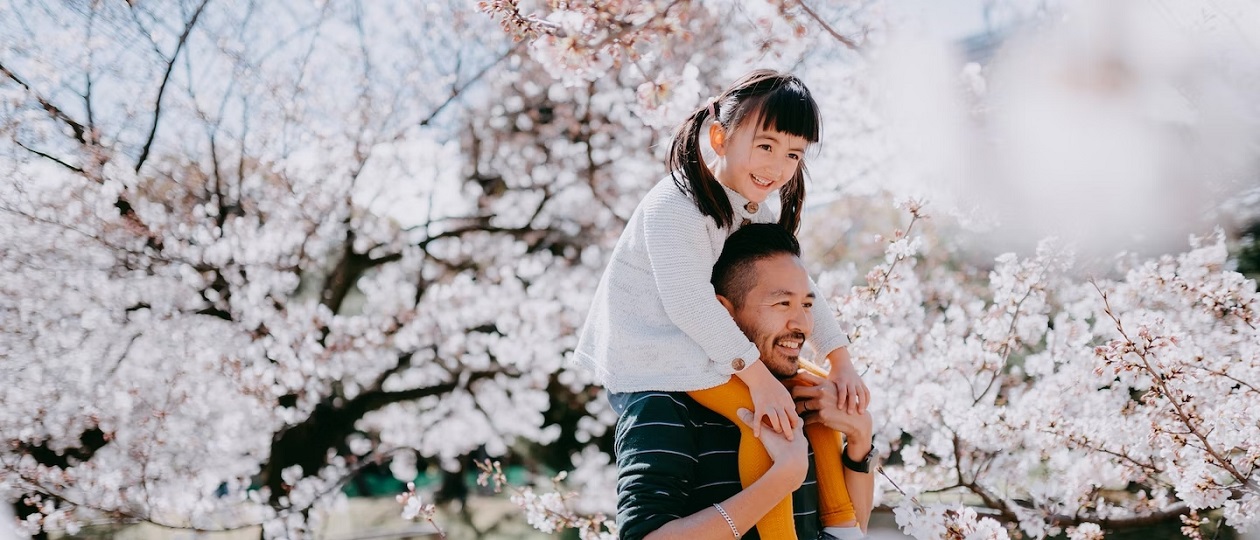
Japan, at first glance, is some kind of an incredible tangle of paradoxes. One first impression is enough.
For instance, how is it possible that although people get to see little of anything other than work, working 70 and sometimes 100 hours a month, and literally die at work (there is even a special word for this — “karoshi”), commit suicide, drink every day … and yet still manage to live the longest in the world? How on Earth is this possible?! 35% of the Japanese do not take any time off per year at all, some companies do not allow for a sick leave, or employees still use it extremely rarely — only in the most difficult situations, and they endure all colds and flus ‘on their feet’, only by wearing a sanitary mask.
A Japanese man once asked me (this was before Covid) whether sanitary masks were worn by Americans or Russians.
“No,” I say, “they are not.”
— And when they get sick, so as not to infect others?
— Then they stay at home.
He was truly surprised.
To find the answer to our question, first of all it is necessary to understand why, in fact, in Japan it is customary to work so much. “Tradition!” — many will respond in this way. But the matter here is much deeper.
It all starts with getting a job, in which a person usually receives both a job for life and a gradual annual salary increase, promotion, and regular transfer from one department to another. All this goes without saying once you shake hands with your new employer.
Moreover, in a number of companies there is no clear definition of job responsibilities and even the position itself. This is very convenient for the employer, since the employee can be forced to do something that is clearly not part of his/her direct duties. Let me support my arguments by giving an example of a survey of high school teachers found that although they worked 53.9 hours a week, only 33% of that time was spent teaching students (standard figures are 38.3 hours and 50%).
Furthermore, if we accept that Result = Investment of effort x productivity, we can say that Japan is a country in which results are achieved precisely by investment of effort. Productivity is less important and receives little attention. Indeed, in comparison with other developed countries, it is particularly low for the Japanese. A lot of time is lost in unnecessary meetings and negotiations, at which, as a rule, the issues raised are not resolved, but merely identified. An agreement is reached after long correspondence and paperwork. Particularly excessive and cumbersome bureaucracy tends to slow down the decision-making processes. Surprisingly enough, it is common knowledge that physical presence at work is more important than the work itself. This is clearly seen in the example of “inemuri” — ‘nodding off’. If a person drops off during a meeting or negotiations, then this will be treated with understanding — “that means he/she is a very good worker and works hard.”
The company, in return, through bonuses and salary increases, rewards those who work long hours i.e. longer than others. This is seen as a sign of loyalty. Several recent studies have shown a direct correlation between promotions and the number of hours spent at work.
The point here is apparently that while productivity is more difficult to determine, sitting at a desk is simply observed “using our eyes” How exactly a person works worries the Japanese only that much.
The third reason is that people are rather concerned about losing face. Therefore, they are “ashamed” to go home first or before their boss. There is even a special term “tsukiai zangyo” (“group processing”).
Another reason lies in the absolute dependence of a person upon the company. Indeed, the education and employment system in Japan is designed in such a way that, with the exception of medical professionals, in business it is irrelevant which academic subject you graduated from at college. You will still be taught everything again in the company. Therefore, the knowledge gained at work cannot be used elsewhere — it has its own rules and laws. Even some special procedures can be carried out in a different order, etc.
Thus, long hours at work are not a tribute to tradition, but a lifestyle.
But then the question arises — how do they even survive? There is no simple answer here.
Firstly, for the Japanese, although they seem rather reserved, even prudish, communication is very important. That is why, after long hours spent in the office, work colleagues tend to flock in never ending queues to various eateries, so that before dozing off on the way home, they can drink beer and have a chinwag from the bottom of their hearts. They leave, already blush in their faces, at a late hour, and the next day they drag themselves back to work. Difficult, eh? Yes, very much so. But this ritual is preserved as sacred. It helps to relieve stress and relax a little.
In eateries they not only drink, but also eat. And I must say that the Japanese diet also helps — it is lean and well balanced and it consists mainly of fish, grains, vegetables and tofu. And what is important is that they begin to get accustomed to it from a very early age —as early as the kindergartens and primary schools.
The Japanese are generally very active. They walk and ride bicycles. Cars are generally used less often — when going for heavy shopping or on a trip.
By the way, the streets here are exceptionally clean. The sidewalks are washed with shampoo, and rarely does anyone litter. Cleanliness is another reason.
An ordinary family lives together, caring for elderly parents. The old people also help around the house, look after the children, and communicate with each other in the yard.
But one of the main reasons, in my opinion, is the Japanese health care system. Why is that so one might ask?
First of all, everyone has health insurance. Japan is not America. It is paid for depending on income, and is received either from one’s employer (“Sakai hoken”) or from the state (“Kokumin kenkoo hoken”). The monthly fee is 6-8% of the family budget. For the vast majority, paying for one’s health insurance is not an issue. For all procedures and medications, not more than 30% is paid.
In Japan, the main emphasis is on preventative medicine. All manner of clinics and hospitals are always full of people — just drop in when you can for a routine medical check-up. This helps to identify and diagnose an illness at an early stage, while there is still time for a successful treatment.
One cannot offer a personal cash contribution or, put simply, you cannot bribe a doctor to pay extra attention to the patient. Both doctors and nurses are always ready to help.
Perceptive attention and many tests help ensure the correct diagnosis and quickly respond to the situation. In combination with everything else, this not only prolongs a person’s life, but also allows him or her to remain active much longer and achieve longevity.
There is no such thing as a perfect country. Each has its pros and cons. In this case, the drawbacks are balanced or even outweighed by its advantages.





